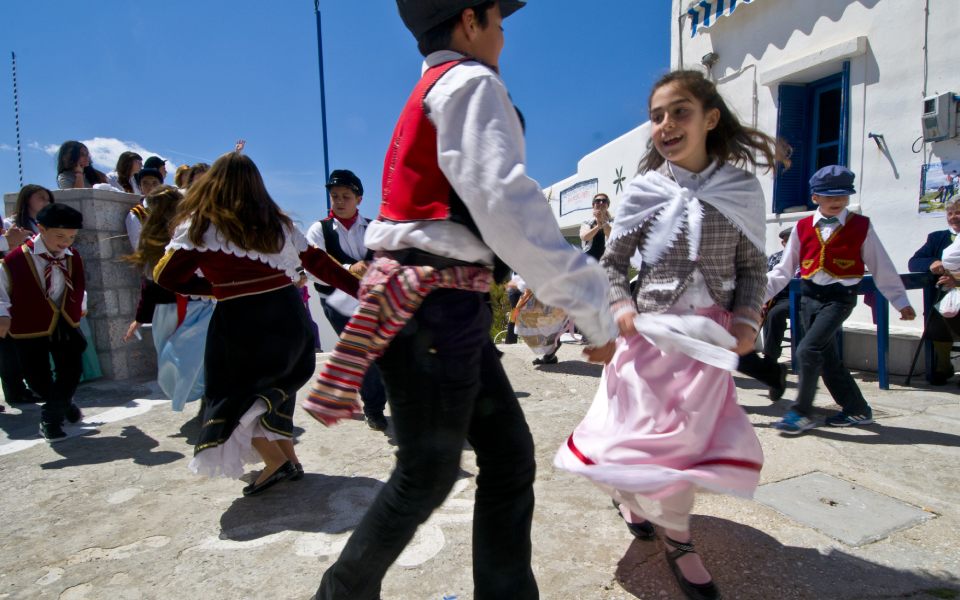
The Captains' Feast in Tholaria, on Amorgos
The captains who would set sail from the island of Amorgos would be at sea most of the year, returning each spring. The islanders would greet them with a large welcoming feast. Today, these seafarers don’t travel year-round anymore, but in the village of Tholaria, the feast remains an important celebration, and the children are always the first to start dancing.
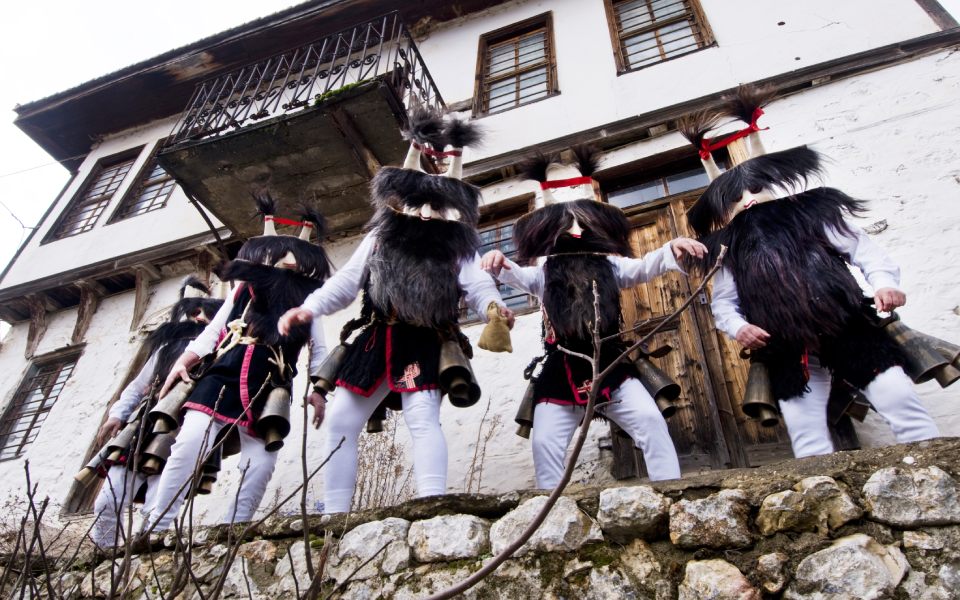
“Babougera” at Kali Vrisi, near Drama
In the villages near the northern city of Drama, following the Feast of the Epiphany, the Babougera festival is held, when bells are rung in order to keep evil spirits at bay, as in many other places. The villagers also wear strange sheepskin masks or paint their faces with wood ash for the same reason. The stronger the man, the more and the larger the bells that he wears, which ring out as he dances through the streets, chasing evil away. Wine and symbols of fertility both feature prominently in what is essentially a Dionysian celebration.
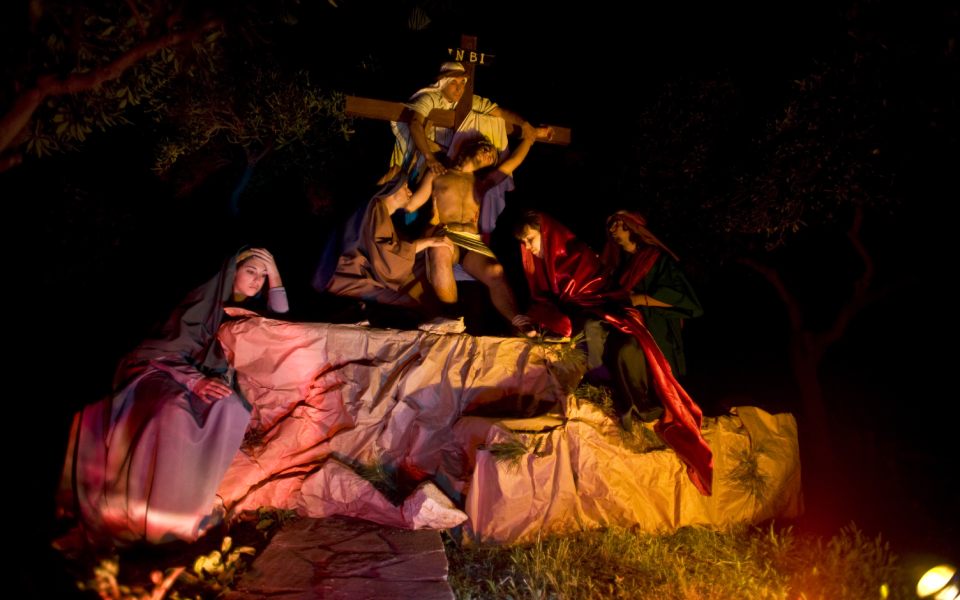
Easter Reenactments in Marpissa, on Paros
In the village of Marpissa on the island of Paros, during the procession of the Epitaphios on Good Friday, live reenactments of the Passion of Christ are staged along the route. Casting, costumes, lighting and direction: everything is taken care of by the villagers. There are, naturally, as many people playing the role Jesus as there are reenactments. It's a great honor for those selected for the part, but there's often a note of levity in their approach, too, and you can often hear jokes like: “I've been descending from the cross for the last ten years!”
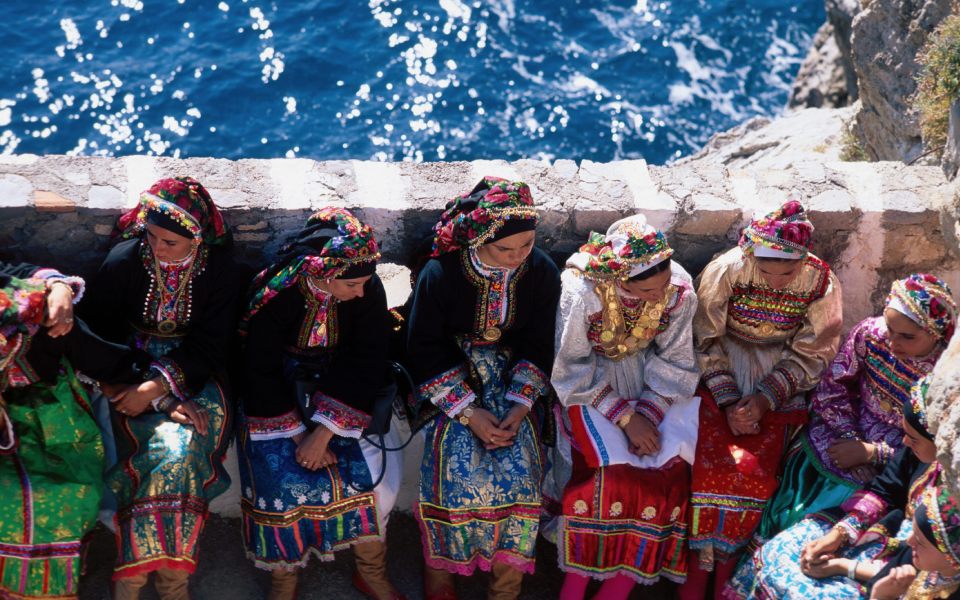
The Festival of Saint John at Vroukounda, Olympos, on Karpathos
Starting on August 28 each year, the village of Olympos on the island of Karpathos holds a three-day feast to celebrate St. John the Baptist. All of the women wear traditional costumes and, in line with an ancient custom, first-born daughters wear all the family’s jewelry, for in times past it was on this occasion that they were meant to meet their future husbands. From the religious service held in the cave at Vroukounda to the food, the music and the dancing, everything that happens has been carefully orchestrated and is laden with symbolism. The overall effect is very powerful, and expats come all the way from America and other distant points just for this ceremony. In fact, the young expat women wear their traditional costumes with pride, too, even though most of them only speak a few words of Greek!
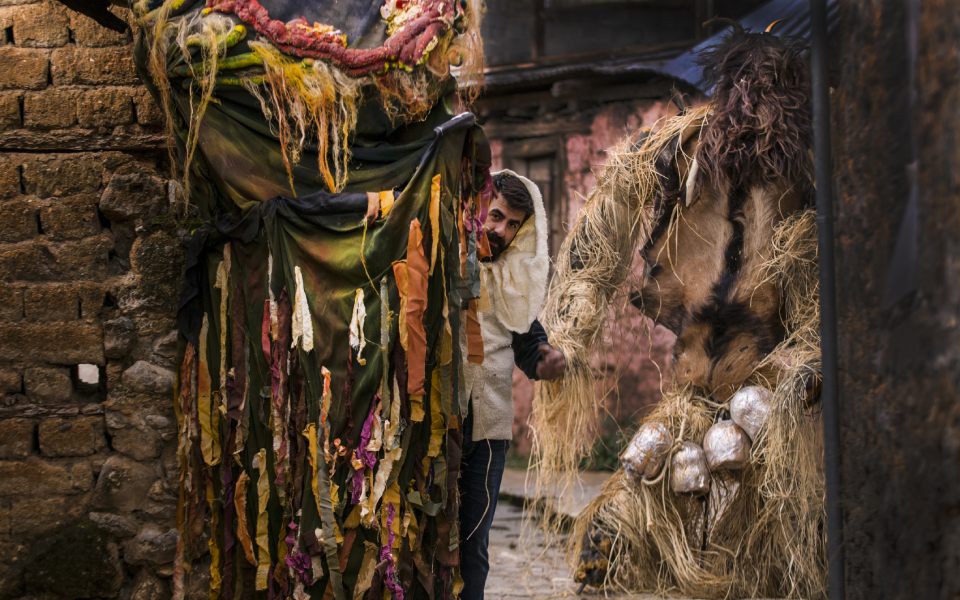
The Night of Ghosts, Amfissa
Every Kathari Deftera, or "Clean Monday," the day that marks the beginning of Greek Orthodox Lent, the Charmaina district in Amfissa in Central Greece, the traditional home of the city's once-thriving tanning industry, celebrates the Night of Ghosts. Scary giant figures, often covered in rags, march around the neighborhood after dark as a reminder of the tragic love story of Lenio and Konstantis. Local legend has it that when Konstantis learned that Lenio, his one true love, had been struck by lightning and killed, he committed suicide, and his ghost has haunted the city ever since. Today, in one of Greece’s strangest celebrations, the local residents gather once a year to haunt the streets with him.
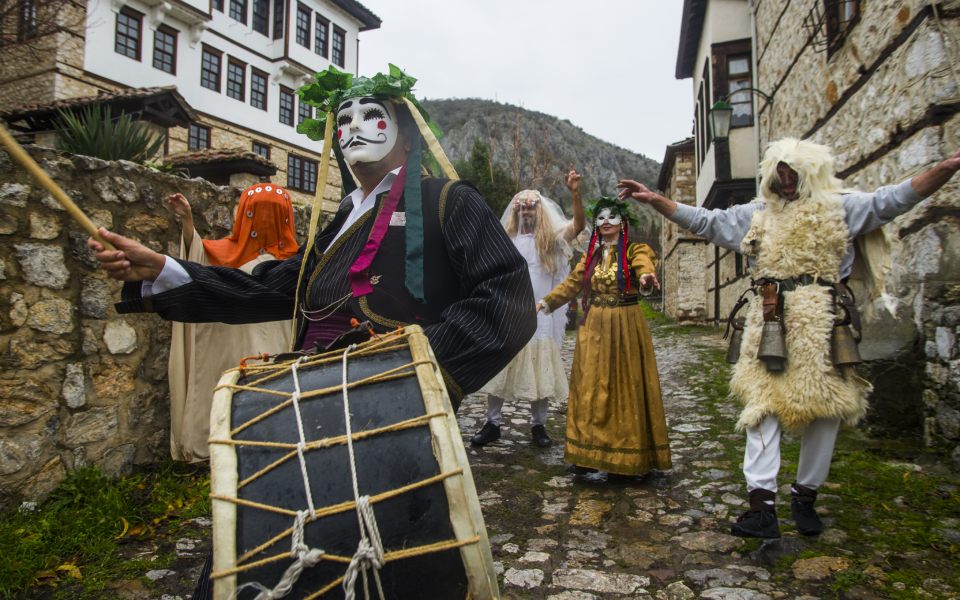
"Ragoutsaria" in Kastoria
The people in the northwestern city of Kastoria mark the Feast of the Epiphany with a carnival-like celebration featuring imaginative outfits, music and a lot of fun. Participants in costume march through the streets, dancing to the sound of both local brass bands and ensembles from neighboring Balkan countries. The ultimate aim of all this joyful noise is to awaken the Earth and ensure fertility and prosperity in the coming year.









